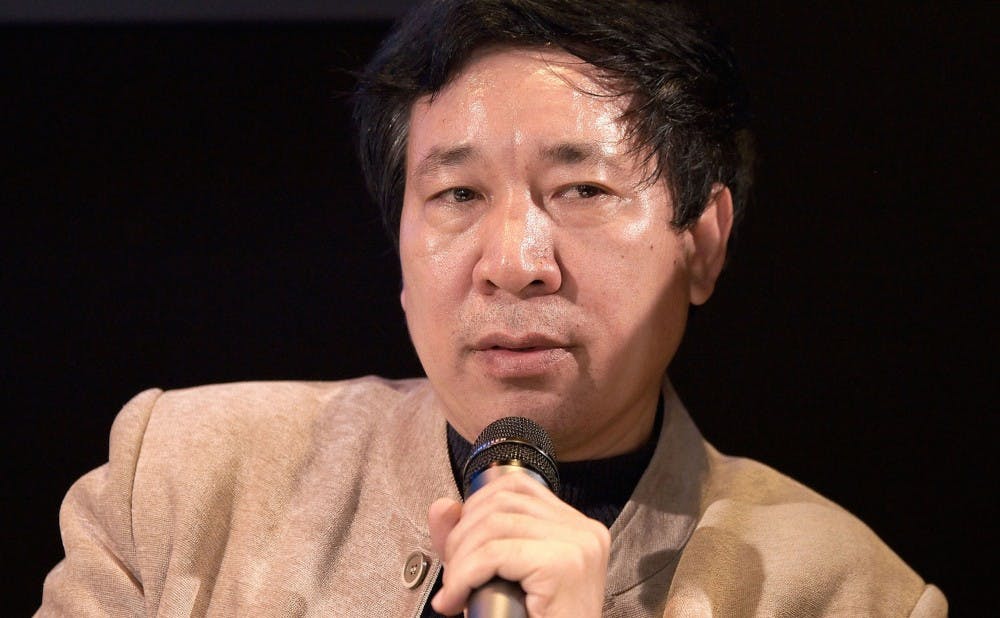Larry Moneta’s recent comments concerning China were heavily debated among Duke students, but they also revealed a much larger truth: Chinese culture is still a foreign world for most Americans, though more and more Americans now recognize China as a country worthy of their business interests. The language barrier is often perceived to be too large; therefore, its literature tends to receive only sparse attention.
One of the authors often ignored is Yan Lianke, a 60 year-old writer from the Henan province in eastern China. Active since the 1980s, he has been noted in the Western world for his scathing satires of Chinese history, which earned him the Franz Kafka Prize and a nomination for the Man Booker International Prize. His latest novel, “The Day the Sun Died,” was just published in English by Grove Press Dec. 17, three years after its initial release and subsequent censure in mainland China. Like many of his prior books, it has been translated by Carlos Rojas, a professor of Chinese Cultural Studies at Duke.
The novel deviates from the abstruse and satirical nature of his previous work, centering around a single night in a village named Gaotian, somewhere in the middle of the Central Plains, on the sixth day of the sixth month of the lunar calendar. Originally an ordinary night, the village experiences a series of calamitous events, as large parts of the population begin to sleepwalk, or, as Rojas prefers to translate it, to “dreamwalk.” In their sleep, the citizens unabashedly pursue their deepest desires; some harvest wheat, some confess their past sins and others fulfill their dreams by murdering their longstanding rivals.
Yan’s primary artistic device is his innocent protagonist, a 14-year old boy named Li Niannian, who recalls the inexplicable events he witnessed in his hometown. His parents own a funerary shop and make their money selling wreaths for those recently passed away, and his uncle owns the crematorium where every newly deceased body is burned, as mandated by law. This seems to have become a ready trope in pop culture, resembling Alison Bechdel’s immensely successful graphic memoir “Fun Home,” or the HBO show “Six Feet Under,” which are both set in similar environments.
Throughout the “warm and stuffy” night, Niannian witnesses his family’s social microcosm decay under the stream of new revelations. While dreamwalking, his own father admits to having been a government informer, who tipped off the authorities about illegal burials of families who wished to circumvent the legally required cremation. “The entire village was sleeping, but it sounded as though it were awake,” he writes. By putting the village to sleep, Yan allows his characters to freely express what they have been repressing under layers of pretentious morals, age-old traditions and rigorous ideological discipline. His object of critique is not a particular style of policy; instead, he chronicles the hypocrisy and ethical rottenness of a society so utterly convinced of its superiority.
That the novel is set in a single, somber night is no coincidence: in a New York Times Op-Ed from 2014, Yan wrote that he “came to understand that darkness is not the mere absence of light, but rather it is life itself.” Faced with the decadence of those around him, his verdict was clear: “darkness is the Chinese people’s fate,” concluding that “only the pursuit of true art, unencumbered by anyone, can help us find the delicate light, beauty, warmth and love that are hidden in the darkness.”
A story of revenge, humiliation and murder, the novel displays a level of brutality quite uncommon in today’s upper echelons of literary life, as the reader sees more and more people die of increasingly senseless deaths. In terms of language, Yan’s prose is clear and believably that of a curious 14-year old, relying on concise metaphors and gaudy similes (“the corpse’s skull had been shattered like a melon”) rather than on convoluted vocabulary. This only highlights Yan’s stylistic gift for stylistic variation, as it contrasts sharply with some of his earlier books. His 2005 novella “Serve the People,” for example, had been abundant in colorful language reminiscent of ancient Chinese poetry and conveyed romantic emotions in seemingly effortless paragraphs of lyrical eloquence.
In a recent profile in the “New Yorker,” Yan is quoted as saying that “the reality of China is so outrageous that it [...] renders realism inert.” Although the present novel is a prime example of this rationale, casting Yan as a mere anti-communist ideologue is too simple to be true. He lets his characters speak for themselves, having been rendered brutally honest and unashamed by their sleepy delirium.
The question overshadowing every conversation regarding Yan is whether he will receive the Nobel Prize in Literature, his case for which “The Day the Sun Died” has only reinforced. Should he be chosen, the prize’s political connotation would become a hot topic once anew, after 2012 laureate Mo Yan received substantial criticism for being too loyal to the Communist party. Yan’s relations with the government have been somewhat paradox, as he remains a member of the party despite the de-facto ban on his books.
No matter the decision of the Stockholm committee, Yan deservedly forms the arrowhead of contemporary Chinese literature along with Yu Hua, and he can confidently be lauded as one of the world’s finest novelists writing today. This excellent novel is only proof of such talent, and readers should devour it not merely for political reasons, but marvel at its meticulous irony, depth and brilliance.
Get The Chronicle straight to your inbox
Sign up for our weekly newsletter. Cancel at any time.

